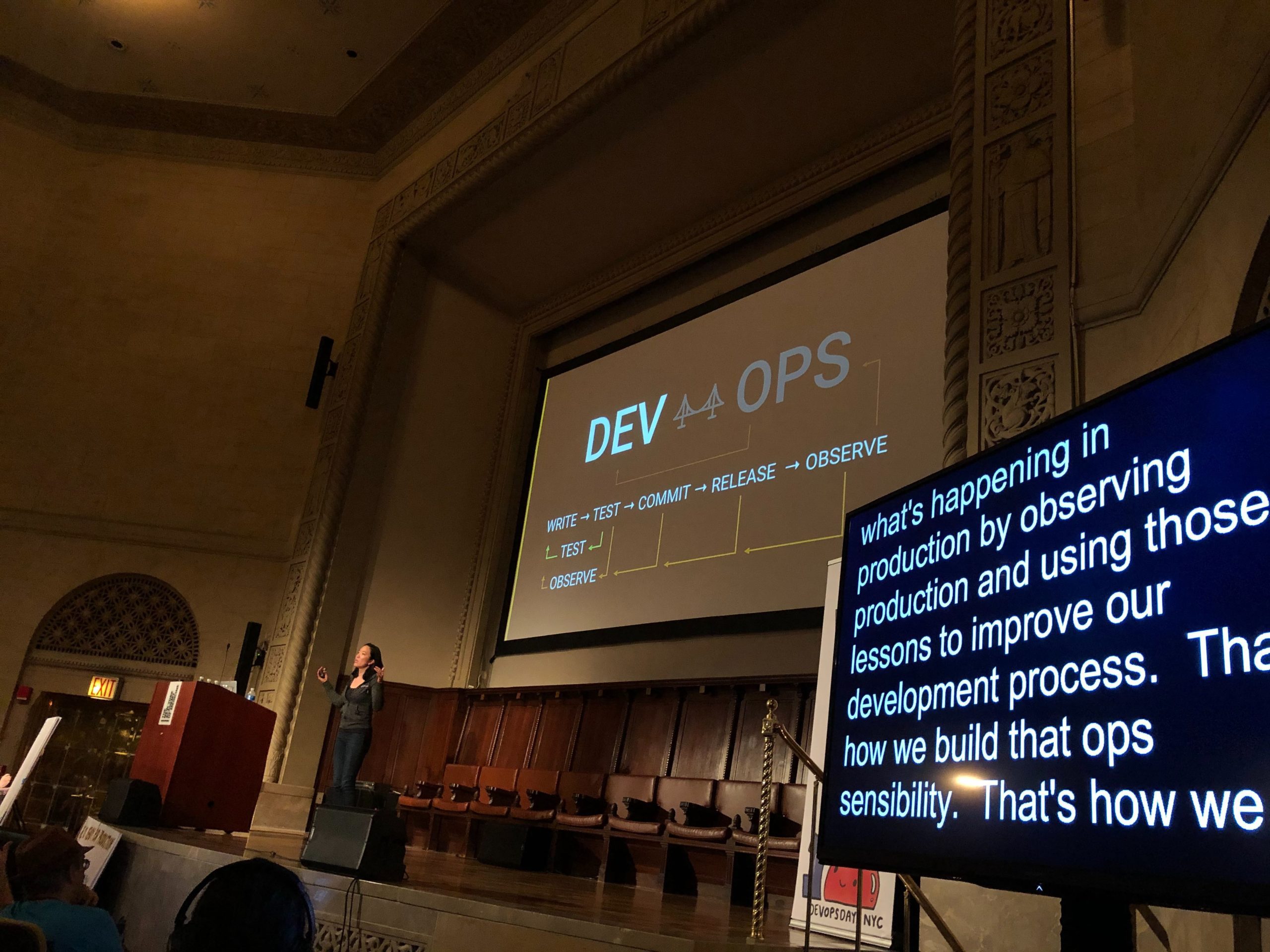I was excited to attend DevOpsDays in New York City in March of 2020, but then again, who wouldn’t be? A whole week in the Big Apple with Liz Fong and Christine Yen, yes, please! I joined Honeycomb as a product designer in January of 2020, making this my first event as a Honeycomb employee. In addition to meeting our users, it was a chance for me to talk with people just starting their observability journey. As a product designer, my focus is on improving the overall user experience. Getting face time with the people who use the product is rare. Even rarer is the chance to hear non-users’ impressions and understanding of Honeycomb. I had no idea at the time that this would most likely be the last physical event I attend in 2020.
This year, DevOpsDays NYC took place at the New York Academy of Medicine, an eclectic building built in 1926 and situated across from beautiful Central Park. It brought together over 500 development, infrastructure, operations, information security, management, and leadership professionals to discuss the culture and tooling necessary to make organizations and products better.
While DevOps is not new to me, the area of observability is. I was curious to learn more about the perceptions and misconceptions from those with the most at stake. So, what did I learn?
1. A lot of people still see/think of observability in terms of logs, metrics, and traces or the ‘Three Pillars.’ Many of those not familiar with Honeycomb started by asking us where we fit into these three pillars or how we integrate with other tools. They assume that we specialize in or support just one of these capabilities.
2. People are hungry for better observability tools. Splitting observability into three separate pillars just isn’t working. Trying to understand your system via three distinct and fundamentally different methods for collecting and aggregating data is tricky at best. Observability requires a holistic approach to understanding, diagnosing, and correcting issues in and across systems.
3. Observability is both reactive and proactive. Troubleshooting an issue while on call or getting to the bottom of an incident are reactive, but aren’t the only time you should be thinking about observability. Pushing new code and observing how users adopt and experience it or looking for ways to improve performance are essential proactive tasks. Practicing observability-driven development allows you to watch the state and behavior of a system before, during, and after development.
4. Honeycomb is onto something. We heard over and over that people continue to struggle with diagnosing and solving incidents, and feel that they’re in a reactive state of solving problems rather than a proactive one. The majority of teams out there are just beginning to start their observability journey, but there is a momentum behind the shift to achieve more observable systems. Organizations that are not already practicing observability have plans to do so within the next two years.
Talking with people from all different experiences and backgrounds also helped me better understand what it is people need from Honeycomb at the user experience level. I saw first hand the differences and similarities in the way different people view, troubleshoot, and diagnose issues in their systems. The applications and services they run may be vastly different, but they are all looking for better ways to ask new questions, see essential insights, and proactively understand what is happening right now in Prod. I’m excited to start taking my learnings and translating them into tangible improvements in Honeycomb’s UI.
As my week came to an end, and the high of meeting new people wore off, the changes happening in the world around me started to sink in. It was becoming evident that drastic changes needed to happen if we were going to fight this virus properly. Many conferences were canceled as it became clear that travel and gathering in large groups were part of the problem.
DevOpsDays NYC was the first and probably last physical tech event I will attend in 2020. While part of me mourns the loss, I am excited about the new world of virtual conferences that is opening up. Not only will we be safer, perhaps going virtual will help make these conferences more accessible. After all, not everyone can take time off or spend the money needed to travel to another city for a whole week.
Honeycomb is participating in several upcoming virtual events—you can see the whole list on our website. In fact, Liz Fong-Jones is giving a lightning talk today at Write/Speak/Code, a Seattle virtual meetup for people of marginalized genders. She’ll be sharing useful tips & techniques for successful live streaming. There is still time to register!
Have thoughts to share on observability, Honeycomb, usability, or all three? I’d love to hear them. Reach out to me at sarrah@honeycomb.io.









